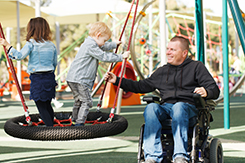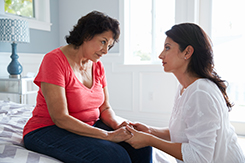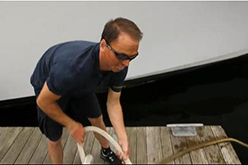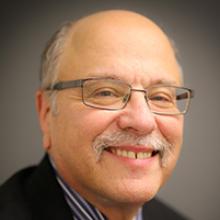Model Systems Knowledge Translation Center (MSKTC)
The Model Systems Knowledge Translation Center (MSKTC) summarizes research, identifies health information needs, and develops information resources to support programs in meeting the needs of individuals with spinal cord injuries, traumatic brain injuries, and burn injuries.
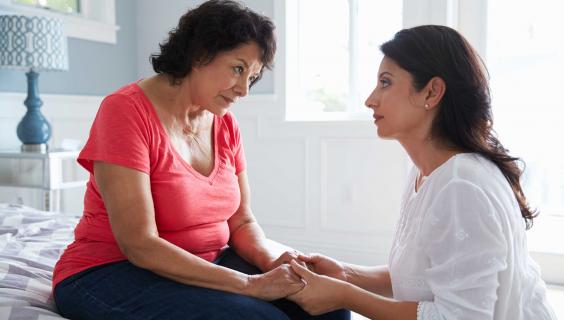
The Model Systems Knowledge Translation Center (MSKTC) summarizes research, identifies health information needs, and develops information resources to support Model Systems programs.
Model Systems are specialized programs of care in spinal cord injury (SCI), traumatic brain injury (TBI), and burn injury. Model Systems pool information and conduct research intended to improve the long-term functional, vocational, cognitive, and quality-of-life outcomes in individuals with SCI, TBI, or burn injury.
The MSKTC works closely with researchers in these model systems to develop resources for people living with SCI, TBI, or burn injuries and their supporters. Evidence-based materials are available in a variety of platforms such as printable PDF documents, videos, and slideshows on the MSKTC website.
Hot Topic Modules
Suites of Resources on Specific Topics
Fact Sheets
MSKTC produces consumer-oriented fact sheets developed in collaboration with the SCI, TBI, and Burn Model Systems programs. These resources undergo expert and consumer reviews to ensure they are updated, evidence-based, and consumer-friendly:
- Urinary Tract Infection and Spinal Cord Injury - Urinary tract infection (UTI) is one of the most common medical problems after SCI. The fact sheet offers information about UTI risk, and how to best prevent and treat it.
- Severe Traumatic Brain Injury: What to Expect in the Trauma Center, Hospital, and Beyond - What to expect following TBI and how to support a loved one on his or her road to recovery.
- Post-Traumatic Stress Disorder (PTSD) After Burn Injury - Common symptoms of PTSD after burn injury, and some treatment options for PTSD.
MSKTC is funded by the National Institute on Disability, Independent Living, and Rehabilitation Research (NIDILRR).
